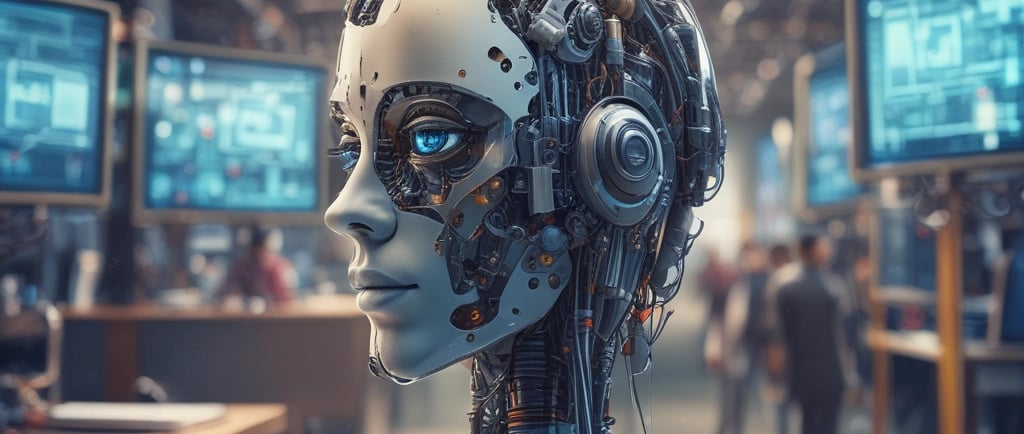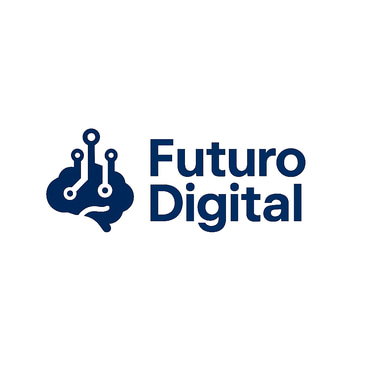Artificial intelligence in 2025: Shaping the Future of Work
Discover how artificial intelligence is transforming the job landscape in 2025. Learn about the impacts of automation and the new opportunities that AI is creating in the workforce.
10/11/20252 min read


Artificial Intelligence (AI) is rapidly reshaping the professional landscape worldwide. In an increasingly automated environment, understanding how new technologies will transform jobs and skills is essential for professionals and businesses alike.
Emerging Trends Toward 2025
According to the World Economic Forum’s Future of Jobs Report (2020), by 2025, automation and AI could displace around 85 million jobs, while creating 97 million new roles across industries. This transformation is not merely quantitative — it’s qualitative. The nature of work itself is evolving, shifting the demand from repetitive tasks toward cognitive, creative, and emotional intelligence.
Automation: What to Expect
Automation will continue to streamline repetitive or manual activities across sectors like manufacturing, logistics, finance, and customer service. Many organizations are already implementing management software that allows companies to monitor operations in real time. Simultaneously, digitalization is expanding into administrative, legal, and even creative fields through technologies such as natural language processing and AI-generated content.
This doesn’t mean humans will become obsolete — rather, the focus is shifting toward tasks that require adaptability, problem-solving, and empathy. Employees who can combine technical knowledge with human-centered skills will remain essential.
New Professional Opportunities
While some jobs will disappear, others are emerging at the intersection of technology and human insight. Careers in data science, cybersecurity, AI development, digital experience design, and behavioral analytics are among those growing fastest. In healthcare, we can expect a stronger presence of telemedicine, AI ethics specialists, and data analysts focused on patient outcomes. These roles highlight the need for a balance between technology and human judgment.
Reskilling: A Critical Priority
Continuous learning and reskilling will be the foundation of professional survival. Initiatives like Google Career Certificates, LinkedIn Learning, and Coursera offer affordable programs designed to bridge digital skill gaps. In Latin America and Europe, organizations such as SENAI and FutureLearn provide technical training aligned with emerging industry needs.
In addition to technical skills, soft skills — collaboration, emotional intelligence, adaptability, and creativity — are becoming just as important. Workers who develop these human capabilities alongside digital fluency will be better equipped for the evolving labor market.
Ethical and Social Challenges
The advancement of AI raises complex ethical issues that extend beyond employment. Topics such as data privacy, algorithmic bias, and digital exclusion must be addressed by governments, corporations, and civil society. Ensuring transparency, fairness, and inclusivity in AI-driven systems will be a decisive factor in maintaining public trust.
Furthermore, access to requalification opportunities should be equitable — if not, automation risks deepening existing inequalities. Responsible innovation and inclusive education will play a central role in mitigating these social challenges.
Practical Takeaways for Professionals
Keep learning: Enroll in online programs or certifications that align with digital transformation trends.
Diversify skills: Combine technical expertise (AI, data analytics) with interpersonal abilities like communication and critical thinking.
Follow the data: Stay informed through reliable sources such as the World Economic Forum, OECD, and McKinsey on future labor trends.
Network smartly: Participate in communities focused on technology, innovation, and ethical AI to exchange knowledge and career opportunities.
Conclusion
The evolution of artificial intelligence not only transforms what it means to have a job but also redefines the skills and values required to thrive in a digital-first world. Professionals with a mindset of continuous learning, ethical awareness, and strategic adaptability will lead this new era.
The challenges are significant — but so are the opportunities. The future of work is already here, and embracing AI with foresight, balance, and curiosity is the smartest step toward sustainable success.
Innovation
Discover how AI transforms everyday life
Technology
Blog
suportevirtual@futurodigital.blog
© 2025. All rights reserved.
Other Pages
